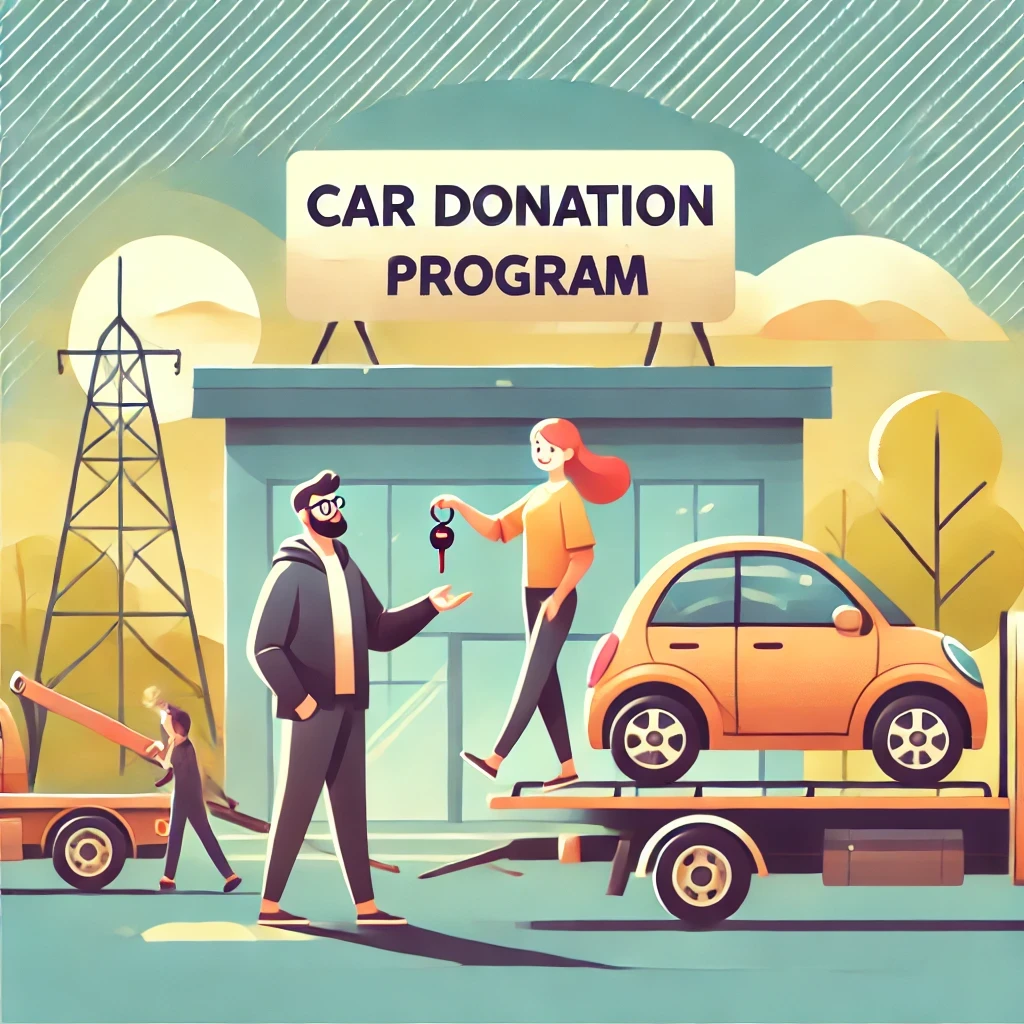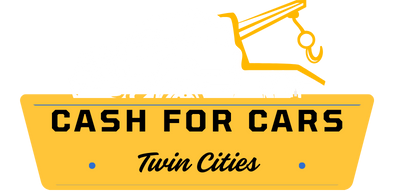fast. free Towing. simple.
How it works
- Fill out the online form.
- We’ll call you to arrange a convenient pickup time.
- We tow your car and you receive a tax credit.
- It's that easy. No paperwork, no headache, zero cost.
fast. free. simple.

fast, Free pickup
Your car can be picked up within 24 hours, and often even the same day.

save money on your taxes
We will issue you a receipt with the fair market value of your vehicle, as determined by wholesale auction averages.

Easy, Hassle-free Process
Our professional team will deal with all the paperwork and handle all ownership documents or other issues.
Donating your Cash For Cars can be a win-win situation for you and those in need. It not only provides you with potential tax deductions but also helps support worthwhile causes and benefits the environment in Golden Valley.
As the popularity of local car donation programs grows, understanding the intricacies involved becomes essential for car owners looking to make a difference. Knowing how to research reputable charities and properly prepare your vehicle can maximize the benefits of your donation.

This article will guide you through the car donation process, covering everything from assessing your car’s value to ensuring you receive the maximum tax benefits. Join us as we explore how you can turn your old vehicle into a meaningful contribution.
Benefits of Donating Your Car – Golden Valley
Donating your car is a straightforward way to support a charitable organization of your choice. This process not only helps a cause you care about but also clears out unwanted vehicles from your property. With changes in donation laws, you can now receive a tax deduction based on the proceeds the charity earns from the vehicle. While donating offers tax benefits, selling your car can provide instant cash.
Contributing to a Worthy Cause
Donating your car links vehicle removal with charitable contributions, letting you support organizations you believe in. Companies offering donation car towing services, like ASAP Towing & Storage, streamline the process. These services often include free towing, facilitating easy disposal of old vehicles and supporting charities without additional costs.
Potential Tax Write-off
When you donate your vehicle, tax deductions are now based on the amount the charity makes from the sale, not the car’s fair market value. Consult with a tax professional or check IRS guidelines for clarity on tax implications. Selling your car generally results in no taxable profit if it’s for less than the original cost, simplifying the transaction with little tax impact. Keep proper documentation for any tax deductions.
Environmental Benefits
Recycling vehicles is environmentally friendly as it reduces the need for new material production, saving energy and resources. Recycled metal requires 74% less energy compared to manufacturing new metal, significantly cutting down production waste. Vehicle recycling helps prevent metals from filling up landfills, saving approximately 85 million barrels of oil annually. Moreover, recycling ensures the safe disposal of hazardous materials, protecting the environment.
Researching Reputable Charities
When considering donating your car to a charity, ensure the organization clearly communicates how they utilize or sell the vehicles. Updated donation laws impact the tax deduction based on the sale amount by the charity, so understanding these changes is crucial. Seek charities with transparent processes, offering immediate cash options or choice in donation timing.
Identifying Charitable Organizations that Accept Car Donations
Many programs offer free removal of unwanted cars, making it easy to dispose of junk vehicles. Some charities provide cash for donated cars, giving donors flexibility in choosing where to contribute. Free towing simplifies the process, letting donors make contributions on their own schedule, without waiting for a vehicle sale.
Evaluating Charity Reputation and Transparency
The charity’s reputation is key, as tax deductions rely on the sale amount realized by the charity. Assess transparency by reviewing their donation process and handling of sale proceeds. Recent legal changes may affect anticipated tax benefits, so thorough research is advisable. Consider potential immediate financial benefits of selling for cash versus uncertain tax deductions via charity sales.
Understanding Your Car’s Fair Market Value
Understanding your car’s fair market value is essential when considering selling or donating it. Factors influencing this value include the make, model, condition, and salvageable parts of the vehicle. Junk cars typically sell for $100 to $1,000, depending on their weight and parts quality, while current scrap metal prices, ranging between $145 to $195 per ton, also play a significant role.

The condition and mileage of your car, along with market demand for specific makes and models, contribute to its fair market value. Providing detailed information such as the car’s make, model, year, mileage, and location is crucial for obtaining an accurate quote. With this, you can ensure you’re getting a fair price for your vehicle.
Importance of Valuation in the Donation Process
Proper valuation maximizes the cash received from a junk car, turning an unwanted vehicle into a valuable asset potentially worth $1,000 or more. Knowing your vehicle’s value before donation or sale allows you to compare offers and ensure a competitive rate. An accurate assessment from experienced junk car buyers, utilizing technology like electronic platform scales, can lead to better financial outcomes.
Understanding valuation is also vital in clarifying tax implications, especially if selling below the original purchase price, potentially exempting you from taxes due to lack of profit. Professional junk car buyers offer immediate cash offers and simplify logistics, making the donation process much easier.
Resources for Determining Fair Market Value
Determining a junk car’s value involves evaluating factors such as make, model, year, mileage, overall condition, and salvageable parts. The base value, mainly influenced by scrap metal content, typically ranges from $145 to $195 per ton. For example, a pickup truck weighing around 3 tons might have a scrap value between $435 and $585.
To receive an accurate quote, sellers should provide essential details like the vehicle’s make, model, year, mileage, and location. Verifying the reputation and reviews of junk car buyers beforehand is crucial to avoid potential scams and engage in trustworthy transactions.
Preparing Your Car for Donation
To maximize the value of your vehicle for donation, gather detailed information like the year, make, model, and mileage when seeking an instant quote. Many car donation programs offer free towing services, making it hassle-free to remove your unwanted vehicle without extra expenses. Take advantage of services available seven days a week to schedule the pickup at your convenience.
Having necessary documentation ready ensures a smooth transaction process when preparing your car for donation. Donating your vehicle also allows you the flexibility to decide where and when to make the cash donation, enhancing your control over the charitable contribution.
Necessary Repairs and Maintenance
Many owners opt to sell vehicles due to costly issues such as transmission problems and electrical malfunctions. Repairing these may exceed the car’s value, making selling for cash a smarter option. Running vehicles often have higher scrap value, so consider costs of minor repairs before selling.
Avoid investing in unnecessary repairs like changing tires or fixing cosmetic issues before selling a junk car. Keeping the vehicle clean and decluttered can improve first impressions, potentially leading to a higher sale price.
Collecting Required Documentation
Confirm that you are the legal owner of the vehicle, as some companies might buy cars without a title depending on local laws. It’s crucial to check your state’s requirements for selling a junk car, as title laws vary. In Minneapolis, you’ll need to complete an “Ownership Responsibility Form” with the vehicle’s details and your contact info.
This form serves as a declaration that you’re accepting liability and informing the DMV that your vehicle has been junked. Clean out the vehicle’s interior and remove license plates before pickup for a swift collection process. This ensures compliance and security during the transaction.
The Donation Process
Donating your vehicle is a straightforward way to convert unwanted cars into cash while supporting your favorite charity. By receiving cash for your car, you can choose to allocate funds to a cause you believe in. The value of your donated vehicle depends on its specific details, such as year, make, model, mileage, and damage, ensuring accurate pricing.

Organizations like ASAP Towing & Storage and Cash Auto Salvage streamline this process by offering free towing services and nationwide vehicle removal, respectively. Without the hassle of transport, you can remove a junk car effortlessly. These services also include 24-hour dispatch, ensuring convenience for donors wanting to declutter their property.
Steps to Donate Your Vehicle
Start by gathering essential details about your vehicle, including year, make, model, and condition. Towing services offer a hassle-free experience by providing upfront cash, which you can then donate at your convenience to a charity of your choice. Expect to receive an accurate donation quote based on your car’s specifics.
Once you accept the estimate, the service schedules a pickup, inspects the vehicle, and delivers payment on the spot. Many companies operate every day of the week, giving you flexibility to coordinate a timing that fits into your schedule.
Arranging for Pickup or Drop-off
To arrange pickup, provide details like your vehicle’s year, make, model, mileage, condition, and location. This helps you receive an instant quote and confirm a convenient time for towing. After accepting an offer, schedule pickup with a towing company, often available for free and same-day service.
You can choose any pickup location, whether it’s your driveway or a public area. During pickup, the tow driver finalizes the transaction by exchanging payment for your vehicle keys and handling all necessary title paperwork, marking a seamless transfer of ownership.
Tax Deduction Considerations
Selling a personal junk car for less than its original purchase price typically means no taxes owed due to lack of profit. It’s wise to consult a tax professional or refer to IRS guidelines to fully understand tax implications related to selling junk cars. Documenting the sale is crucial, particularly if the sale price is less than what you paid originally.

When donating a junk car, the donor can choose when and where to donate the cash after receiving payment. Proper disposal and recycling of parts can also carry tax implications, emphasizing the importance of handling the transaction responsibly.
Types of Deductions Available
The amount you can deduct when donating a car is based on the selling price the charity receives, not its appraised value. Changes in car donation laws have generally reduced potential tax deductions. Selling your vehicle for cash might be more financially beneficial and quicker than waiting for a donation’s tax value.
Immediate cash returns from selling can outweigh the delayed and potentially lower benefits of a donation deduction. Knowing deduction thresholds is crucial for informed financial decisions.
Documenting Your Donation for Tax Purposes
Keep records of vehicle donations and the original purchase price to support tax deduction claims. It’s vital to consult a tax professional or consult IRS guidelines for specific advice on potential implications.
Documenting the vehicle’s condition and value at donation time can bolster your tax deduction claim. Proper disposal and recycling after donation should also be included in your documentation for thoroughness and future reference.
Questions to Ask Before Donating
When you decide to donate your car, understanding the value assessment process is crucial. Factors like the year, make, model, mileage, and any existing damage determine how much you can claim as a tax deduction. Always prepare relevant information such as the vehicle’s condition and the title status to streamline this process and maximize your tax benefits.
It’s beneficial to choose a charity that aligns with your personal values, as many car donation programs offer this flexibility. Some towing services even provide free removal, ensuring a hassle-free experience. With several junk car buyers operating seven days a week, you can conveniently arrange towing and donations to fit your schedule.
How Will My Car Be Used?
When donating or selling your junk car, it’s evaluated on factors like year, make, model, mileage, and condition. Companies such as ASAP Towing & Storage propose solutions where you can convert your car’s proceeds into charitable donations, if desired. Various junk car buyers, including Cash Auto Salvage, provide services across the nation, removing vehicles that run, are damaged, or are non-operational.
The process in the junk car market typically involves quick cash payouts with advantages like free towing and clear quotes. These services ensure your unwanted vehicle finds use, either through resale or as scrap, alleviating the stress of handling it independently.
What Portion of Proceeds Go to the Charity?
Recent changes in donation laws mean that your tax deduction now corresponds to the amount the charity receives from selling your car. This can result in fewer benefits compared to a direct sale. Selling your car provides immediate financial returns and allows you to donate cash directly—or later—to a charity of your choice, ensuring full control over your contributions.
Car donation programs often yield only a portion of the sale proceeds to the charity, potentially offering less than what you’d gain through a sale. Opting to sell your vehicle directly could remove uncertainties about how much of your donation truly aids the charitable organization.
Common Mistakes to Avoid
Selling or donating your used, junk, or unwanted cars in the Twin Cities can free up space and earn extra cash. However, many vehicle owners fail to provide detailed information such as mileage and damage history, which are crucial for getting the highest cash offer. Additionally, selling a vehicle privately involves risks, such as meeting strangers, making a local auto recycler a safer and more convenient choice. Ensure your car isn’t already in junkyard condition to increase acceptance chances. Having the vehicle title ready streamlines the selling process, and not knowing local junk car service conditions, like free towing, can lead to missed cash sale opportunities.
Not Researching the Charity Adequately
Car donation programs offer convenience, but this doesn’t replace the need for thorough research into the charity you choose. Many people overlook examining how charities utilize donations, possibly leading to contributions to less impactful organizations. Some services allow individuals to sell their car, keep the cash, and donate at their convenience, emphasizing the importance of understanding how donations are handled. To avoid unintended outcomes, focus on the charitable impact rather than just the service’s immediate benefits.
Failing to Document the Donation Properly
Proper documentation of your car donation is critical. It helps establish the vehicle’s history and is essential for legal and tax purposes. Gather all necessary paperwork, like the title and registration, before donating. Each state has different laws regarding junk car titles, so be familiar with local regulations. If the title is lost, contact your local DMV for a replacement to prove ownership. Inadequate documentation can lead to issues with tax deductions, as the IRS requires clear records to validate any tax benefits from donations.
What Types of Vehicles Can You Donate?
We accept a wide variety of vehicles,
including:
Cars
Trucks
SUVs
Vans
Boats
Motorcycles
Non-operational vehicles
Donate Your Car Today!
Ready to make a difference? Contact us now to donate your car and support a great cause. It’s fast, easy, and impactful
